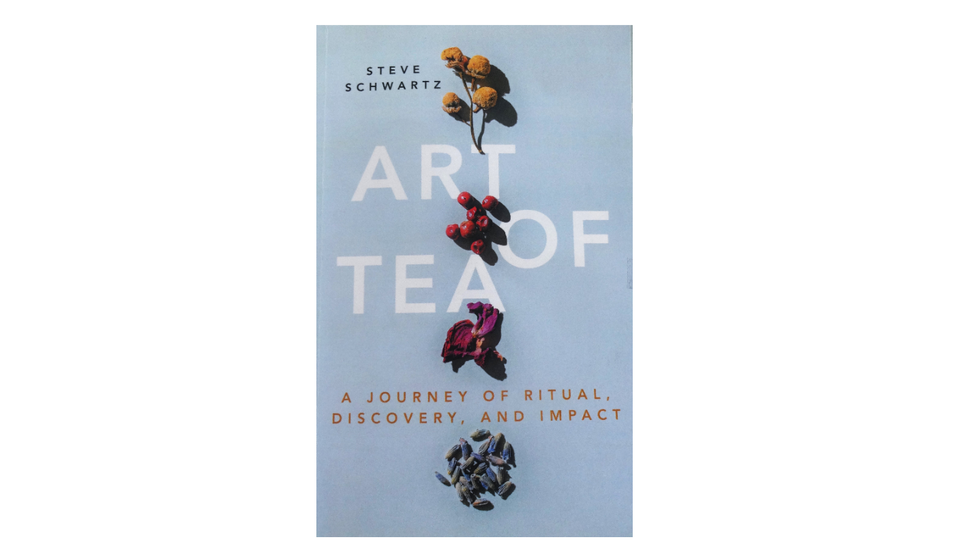Coffee Service
'Art of Tea': How having a mission drives success
Steve Schwartz's journey from an impoverished childhood to a tea wholesaler is fascinating in ways that are relevant to everyone in the convenience services and foodservice industries.

January 2, 2023 by Elliot Maras — Editor, Kiosk Marketplace & Vending Times
Everyone in the customer experience business has an opportunity to make people's lives better. Those entrepreneurs who fully grasp this concept are often the most successful. And the most interesting.
Success, for such individuals, is not measured strictly in dollars and cents, but from the satisfaction of making a difference in people's lives.
Some notable examples of this in the convenience services and foodservice industries include the Automat, which many credit with launching the chain restaurant concept in the U.S., and Starbucks, which revolutionized the retail coffee experience.
Tea entrepreneur turns author
 |
Steve Schwartz |
During the recent Coffee Tea & Water show in Las Vegas, I had the opportunity to meet Steve Schwartz, founder of Art of Tea, a tea importer and wholesaler based in Los Angeles. In addition to offering tea blends at his exhibit on the show floor, Schwartz gave out copies of his book, "Art of Tea, A Journey of Ritual, Discovery, and Impact," published by Lioncrest Publishing in Austin, Texas.
In the days following the trade show, I immersed myself in the 200-plus-page book, which describes Schwartz's journey from an impoverished childhood to his success as a master tea blender and purveyor of organic and specialty teas. A journey that has included partnerships with brands such as Wolfgang Puck, Vera Wang, Disney and Caesars Palace.
Schwartz's journey was fascinating in ways that are relevant to everyone in the convenience services and foodservice industries.
The journey begins
Following his mother's death from cancer, Schwartz became interested in alternative medicines. His search led him to the Aryurvedic Institute in Albuquerque, New Mexico, which teaches an ancient Indian medical science that understands the human body as a connective organism. It was here he became interested in herbology.
His interest in tea's relationship to health eventually led him to launch a wholesale tea business.
He accepted a job at a Los Angeles treatment center for troubled children while he developed his wholesale tea business. The business grew slowly as he sourced his teas and called on local restaurants.
His earliest victory was gaining the attention of a Wolfgang Puck chef who became his first major customer.
COVID hits
Things were going well for Schwartz in 2020 until COVID hit.
Realizing he needed to diversify beyond his hospitality customer base, he launched an online course called Art of Tea Academy with videos about the history of tea and other aspects of tea. The course was free for the first 90 days.
While he viewed himself as a tea evangelist, one of the most interesting moves Schwartz took during the pandemic was deciding not to market the antiviral qualities of tea. While he firmly believed in tea's health benefits, he recognized that antiviral messaging would alarm customers — the exact opposite impact he wanted to make during the pandemic.
Secondly, he recognized that individuals experience maladies differently. Offering a medicinal solution in response to a specific malady ran the risk of promising something he could not deliver.
New discoveries
Like many business owners struggling to survive the pandemic, Schwartz used the downtime to fine tune his operation and expand his product knowledge.
His desire to learn more about tea took him to the Far East where he visited historic tea farms. This enhanced his education about tea and created sourcing opportunities, but it did something else that in his view was equally important.
Visiting the tea farms allowed Schwartz to see how his business was helping the lives of tea growers and their families. He visited a collective in China that was incorporating direct trade and ethical sourcing. The workers picked the tea leaves and weighed them, and the processor paid them based on the weight.
The mayor of a town in one tea-growing region — one of the few towns he visited in China with paved and lit roads — took him to visit factories and schools financed by the ethical trade and direct sourcing.
The book also explores in depth the medicinal benefits and historic rituals of tea that will interest many of Schwartz's industry peers.
Parts of the book also serve as a primer for anyone looking to become a "tea expert."
Last but not least, the book's last 40 pages are devoted to tea recipes.
Lessons to remember
As a journalist covering the convenience services industry for three decades, Schwartz's book reminded me why I have chosen to stay in this industry all of these years: for the chance to experience the passion of its members' commitment to nourishing people's bodies and souls.
Schwartz's book brought to mind "The Automat," a book by Lorraine Diehl and Marianne Hardart, the great granddaughter of Automat co-founder Frank Hardart. The Automat was one of the first businesses to popularize automation, but it was also an effort to bring high quality food at low prices to an environment patronized by people of all social strata.
Schwartz's book also brought to mind "Onward" by Starbucks CEO Howard Schultz, which chronicles Schultz's decision in 2008 to re-assume leadership of the company after formally recognizing the "commoditization" of the Starbucks experience. The move resulted in the closing of 7,100 stores for three and a half hours to retrain its baristas, a move that didn't win the support of financial analysts but one Schultz deemed necessary to restore the company's mission.
All such books are real life portraits of leadership in changing and challenging times. They also remind us why we have devoted much of our lives to a profession we love.
What is your heritage in the convenience services/foodservice industry? If you have not given it much thought, such books give you food for thought about why you should.
Photo: LinkedIn.
About Elliot Maras
Elliot Maras is the editor of Kiosk Marketplace and Vending Times. He brings three decades covering unattended retail and commercial foodservice.
 ChatGPT
ChatGPT Grok
Grok Perplexity
Perplexity Claude
Claude






